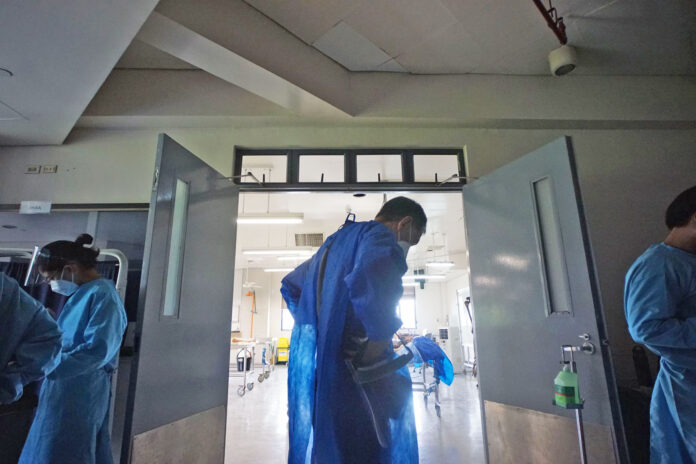Young Filipinos graduating with nursing or medical degrees face significant hurdles to stable employment, fair pay and meaningful roles within the local public health system, researchers at Ateneo de Manila University warn.
These problems and proposed solutions were laid out in the recent peer-reviewed paper, “Health Workforce Issues and Recommended Practices in the Implementation of Universal Health Coverage in the Philippines,” conducted by Veincent Christian Pepito, Arianna Maever Loreche, Ruth Shane Legaspi, Ryan Camado Guinaran, Theo Prudencio Juhani Capeding, Madeline Mae Ong and Manuel Dayrit of the Ateneo School of Medicine and Public Health and the University of the Philippines-Manila.
The Philippines faces a massive shortage of health professionals, with fewer than eight doctors per 10,000 people – below the international standard of 10 per 10,000 – and more than 127,000 vacancies for nurses, particularly in rural areas and private facilities.
The researchers found that many new graduates feel lost and unsupported when they join the workforce.
“I finished my MD from one of the best schools in the country,” said a municipal health officer assigned to a remote area.
“But when I worked here, it was an entirely different ballgame. We weren’t trained how to deal with the local administration and procurement, how to talk to local chief executives. I wasn’t prepared nor trained for this – but this is how we make things happen,” the health officer said.
According to many interviewees, the country’s medical and nursing education system focuses too heavily on hospital-based care, leaving them ill-prepared to handle community work, government systems and health programs.
Many health facilities also point to restrictive hiring rules and budget ceilings as barriers to filling vacant posts. Local government units (LGUs) are required to allocate no more than 45 percent of their annual budget to salaries. This forces overworked nurses to take on multiple roles, often without additional pay.
“The 45-percent cap on personnel services really prevents us from hiring. You see a ward nurse being assigned as the public health nurse… and also as a records officer. That’s extra work, no extra compensation,” said a provincial health official.
Fresh graduates are forced into a frustrating dilemma: many are willing to serve in the public sector but are either not qualified under strict civil service requirements or are offered short-term contracts with no job security or clear path for career growth. Meanwhile, private facilities struggle to match government pay scales, and both sectors lose workers to better-paying jobs abroad.
“The nurses we lost are our best nurses,” said one hospital administrator. “It is painful that the trained ones are the ones who leave. The ones left with us are either the new ones or the very old.”









